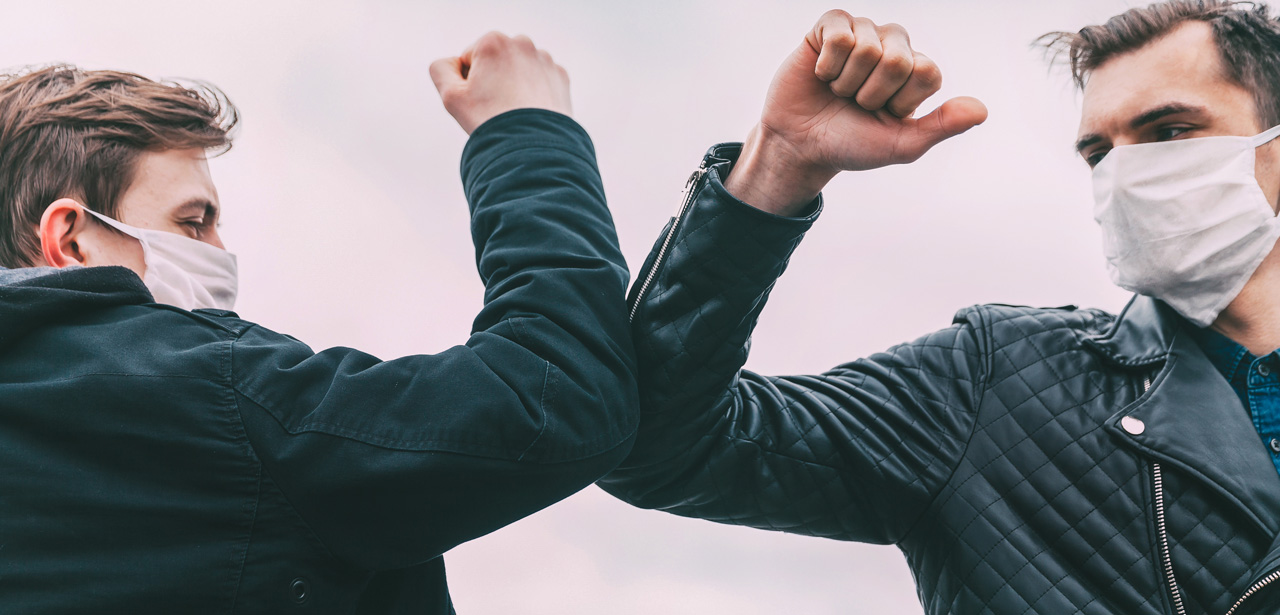Background: several countries have implemented mobile apps in an attempt to try to trace the contacts of cases of COVID-19 and therefore reduce the number of people infected with SARS-CoV-2. However, the effectiveness of this approach depends on the adherence of a large segment of the population. Objective: our aims were to estimate, the acceptability in France of a contact tracing app using mobile phones, and to investigate the barriers to its use. Methods: the Health Literacy Survey 2019 survey questioned 1 003 people in France during the COVID-19 pandemic on the basis of quota sampling. It collected sociodemographic characteristics and health literacy but also information on communication with caregivers, trust in institutions, and COVID-19 knowledge and preventive behaviours. The acceptability of a mobile app for contact tracing was measured by a single question, the responses of which were grouped into three modalities: App-supporting, App-willing and App-reluctant. Multinomial logistic regression was used to identify the factors associated with the acceptability of a mobile app in the COVID-19 pandemic. Results: only 19.2% (193 out of 1 003) were App-supporting while half of the participants (n=504, 50.3%) were reluctant. The factors associated with willing or supporting the tracking app were: lower financial deprivation (respectively adjusted Odds Ratio=0.8, 95% Confidence Interval [0.69 - 0.93] and adjusted Odds Ratio=0.7, 95% Confidence Interval [0.58 - 0.84]) and higher perceived usefulness of using a mobile app to send health questionnaires to doctors (respectively adjusted Odds Ratio=2.3, 95% Confidence Interval [1.70 - 3.26] and adjusted Odds Ratio=3.1, 95% Confidence Interval [2.04 - 4.82]). Age over 60 (adjusted Odds Ratio=1.9, 95% Confidence Interval [1.13 - 3.22]), trust in political representatives (adjusted Odds Ratio=2.7, 95% Confidence Interval [1.72 - 4.23]), feeling concerned about the pandemic situation (adjusted Odds Ratio=2.2, 95% Confidence Interval [1.47 - 3.32]), and knowledge about the transmission of COVID-19 (adjusted Odds Ratio=2.0, 95% Confidence Interval [1.39 - 2.96]) increased the likelihood of supporting the tracking app. Conclusions: the most economically precarious people, who are more at risk of SARS-CoV-2, are also the most reluctant to use a contact tracing app. Therefore, optimal adherence can only be effective with a targeted discourse on public health benefits to adopt such an app which should be combined with a reduction in inequalities by acting on structural determinants.
Auteur : Touzani Rajae, Schultz Emilien, Holmes Seth M, Vandentorren Stéphanie, Arwidson Pierre, Guillemin Francis, Rey Dominique, Rouquette Alexandra, Bouhnik Anne-Déborah, Mancini Julien
JMIR mHealth and uHealth, 2021, p. 1-29


